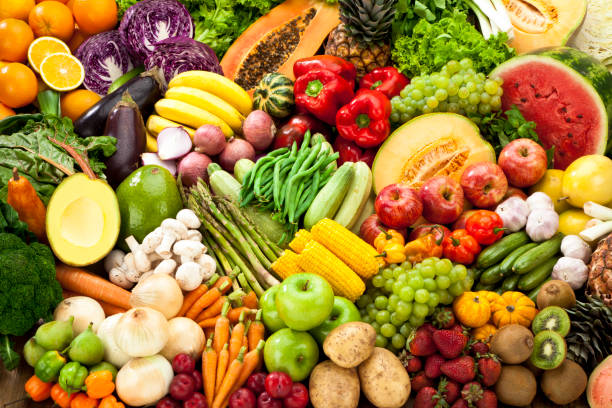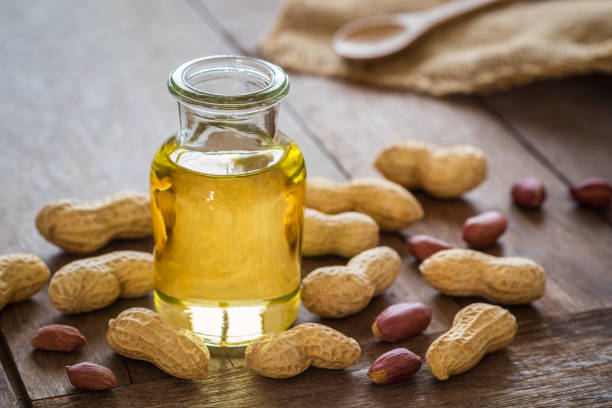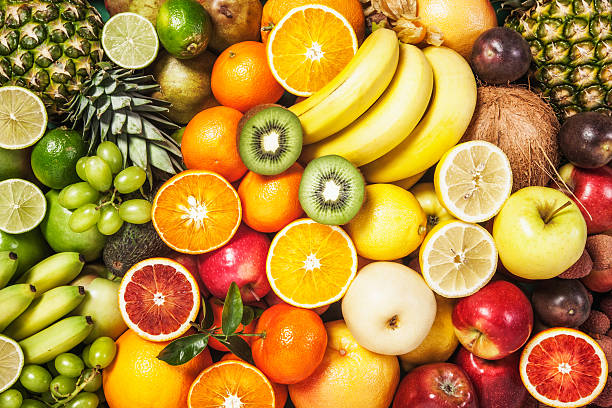The Vibrant World of Fresh Vegetables
Fresh vegetables are the cornerstone of a healthy and balanced diet. Packed with vitamins, minerals, fiber, and antioxidants, they offer a wealth of benefits for our bodies and minds. This blog post explores the importance of incorporating fresh vegetables into your meals, offers tips on selecting the best produce, and provides guidance on proper storage to maximize freshness and nutritional value.
Why Fresh Vegetables are Essential:
Fresh vegetables are nutritional powerhouses. They provide:
- Vitamins and Minerals: Vegetables are rich sources of essential vitamins like A, C, K, and folate, as well as minerals like potassium and magnesium, crucial for various bodily functions.
- Fiber: Dietary fiber, abundant in vegetables, aids digestion, promotes gut health, helps regulate blood sugar levels, and contributes to feelings of fullness.
- Antioxidants: These compounds protect cells from damage caused by free radicals, reducing the risk of chronic diseases.
- Low Calories and Fat: Most vegetables are naturally low in calories and fat, making them ideal for weight management.
Selecting the Freshest Produce:
Choosing high-quality fresh vegetables is key to maximizing their flavor and nutritional content. Here are some tips:
- Look for vibrant colors: Bright, deep colors often indicate higher nutrient content.
- Check for firmness: Avoid vegetables that are soft, wilted, or bruised.
- Inspect for blemishes: Look for smooth, unblemished skin. Some minor imperfections are okay, but avoid produce with significant damage.
- Consider seasonality: Seasonal vegetables are typically fresher, more flavorful, and often more affordable.
- Smell for freshness: Some vegetables, like herbs and ripe tomatoes, have a distinct aroma when fresh.
- Buy local when possible: Local farmers’ markets and farm stands offer the freshest produce, often picked at peak ripeness.
Proper Storage for Maximum Freshness:
Proper storage is crucial for extending the shelf life of fresh vegetables and preserving their nutritional value:
- Refrigeration: Most vegetables benefit from refrigeration. Store them in the crisper drawer to maintain humidity.
- Separate storage: Store ethylene-producing fruits (like apples and bananas) away from vegetables, as ethylene gas can accelerate ripening and spoilage.
- Proper containers: Use airtight containers or reusable produce bags to prevent moisture loss and maintain freshness.
- Don’t wash before storing: Washing vegetables before storing can promote bacterial growth. Wash them just before use.
- Specific storage tips:
- Leafy greens: Wrap in a damp paper towel and store in a plastic bag or container.
- Root vegetables: Store in a cool, dark, and dry place.
- Tomatoes: Store at room temperature for optimal flavor. Refrigeration can diminish their taste.
Incorporating More Fresh Vegetables into Your Diet:
Making fresh vegetables a regular part of your meals is easier than you think:
- Add them to every meal: Include vegetables in breakfast (like omelets or smoothies), lunch (salads or wraps), and dinner (roasted, steamed, or stir-fried).
- Snack on raw vegetables: Keep pre-cut vegetables like carrots, celery, and bell peppers readily available for healthy snacks.
- Experiment with different cooking methods: Explore various ways to prepare vegetables, such as roasting, grilling, steaming, sautéing, and stir-frying, to discover new flavors and textures.
- Visit local farmers’ markets: Discover new and seasonal vegetables and support local farmers.
Conclusion:
Fresh vegetables are essential for a healthy lifestyle. By understanding how to select, store, and prepare them, you can maximize their nutritional benefits and enjoy their vibrant flavors. Make them a regular part of your diet and reap the rewards of a healthier, happier you.



